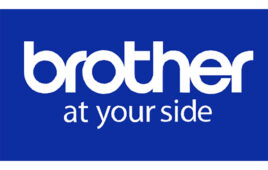No matter where you choose to operate your c-store chain, technological opportunities exist throughout the U.S.
 By Ed Collupy
By Ed Collupy
Compasses have been sailors’ companions for years helping them navigate unfamiliar waters. This election year we’ve certainly heard of the moral compass candidates follow. In business, I’ve helped execute a business strategy guided by “true north.”
Today, let’s use the compass to point us in the many directions we could head to learn and discover some of the places across the U.S. where technology is making a difference in the convenience store industry.
THE NORTHEAST
Our starting point is the Northeast. It’s a hub of activity certainly led by educational institutions like MIT in Cambridge/Boston, viewed by many as the No. 1 engineering school in the nation. Over the years it’s been the host to c-store techies looking to learn what’s next. Recently, a W3C (World Wide Web Consortium) meeting held at MIT, focused on Web payments and discussed work that our industry’s technology voice—Conexxus—is leading around digital offers.
Some of the c-store industry’s early tech adopters and innovators are located in the Northeast. Convenience Store Decisions’ 2016 Convenience Store Chain of the Year, QuickChek, based in New Jersey, was highlighted during a recent NCR Synergy session on self-checkout, as the chain has led the industry with this customer service initiative. QuickChek is also meeting customer expectations by extending its mobile app with an order-ahead feature for its food program.
Cumberland Farms in Massachusetts took the industry by storm with its mobile payment app, SmartPay. Sheetz and Wawa, convenience chains both headquartered in Pennsylvania, have been industry leaders in foodservice while technology has been part of their go-to-market strategy. Whether it’s in the kitchen or on the sales floor with customer-facing kiosks, these chains have leveraged technology to help them grow and expand to markets in the South.
SOUTHERN SOLUTIONS
Let’s head South where many of the industry’s leading technology service providers call home. Gilbarco (North Carolina), Wayne (Texas) and NCR (Georgia) are all active, not only in delivering EMV, but in moving from that distraction to focusing on new solutions.
CMI, based in North Carolina, solution providers Pinnacle and PDI, each based in Texas, have platforms that allow retailers to take data and turn it into actionable steps. In Mississippi, in the Delta where fuel margins have not been the same as other areas of the country in the last few years, several retailers have worked with their back-office partners to leverage technologies to address economic challenges.
On the academic front, The University of Texas at Austin established the Center for Identity to serve as a center of excellence for identity management, privacy and security. Technology leaders in the convenience store industry visited the center to learn how to meet the growing challenges in managing and protecting personal identifiable information (PII), one of industry CEOs’ top ‘keep me up at night’ concerns.
At Georgia Tech’s ATDC (Advanced Technology Development Center), a former c-store technology entrepreneur recently spent a year helping other technology entrepreneurs in Georgia launch and grow successful start-up companies.
The largest U.S. c-store chain in the industry, 7-Eleven, calls Texas home and is an industry leader with technology initiatives through 7-Ventures; a venturing arm “focused on discovering, partnering and investing in startups that complement 7-Eleven’s core value proposition of providing customers with convenience in their everyday lives.”
It has also announced technology-driven partnerships in major U.S. cities with companies like Door Dash and Postmates.
GO WEST
The West continues today to be the new frontier. The Microsoft Retail Experience Center in Washington State showcases, in a shopping mall-type environment, consumer technologies that can and will be adopted soon at a c-store near you or other retail channels looking for ways to win the convenience shoppers’ wallets. Silicon Valley in California—with the highest engineer to employee ratios in the country—has its share of venture capital firms targeting the mobile commerce space.
Kleiner Perkins Caufield & Byers is one such firm in the valley that has introduced c-store tech leaders to new solution providers they believe have the ability to change the way retailers interact and engage with our customers.
To locate the region where resources might be considered the best in technology for a c-store operator, you really don’t need a compass to find that throughout the U.S. there is no one pocket of technological muscle that can outdo the rest.
That’s good news; you can look nearby or wherever you travel to discover ways technology, along with the support systems that come with it, have and will continue to guide the c-store industry.
Convenience retailers should take opportunities to align with a local university, reach out to their industry neighbors and spend some time in those stores and participate in local technology and user groups. Use your internal compass to guide you through these types of activities to advance your business and bring success to your career no matter where your compass says you are headed geographically.
Ed Collupy is an executive consultant at W. Capra Consulting Group and can be reached at [email protected] or visit www.capraplus.com for more retail technology and business insights. Collupy has IT leadership and business team experience, directing and supporting retail systems for store operations, merchandising, fuel and accounting teams in the c-store industry.




